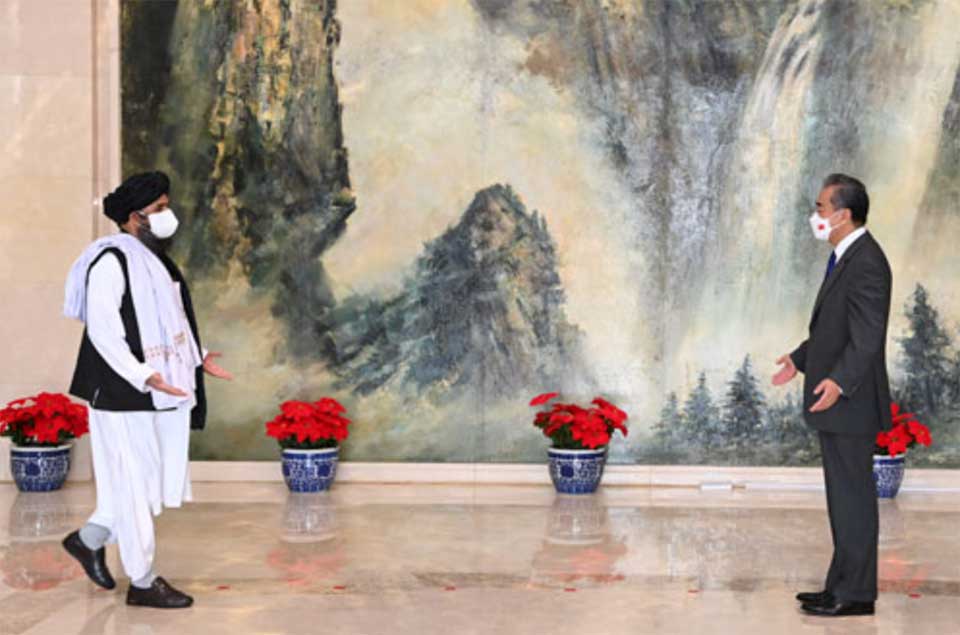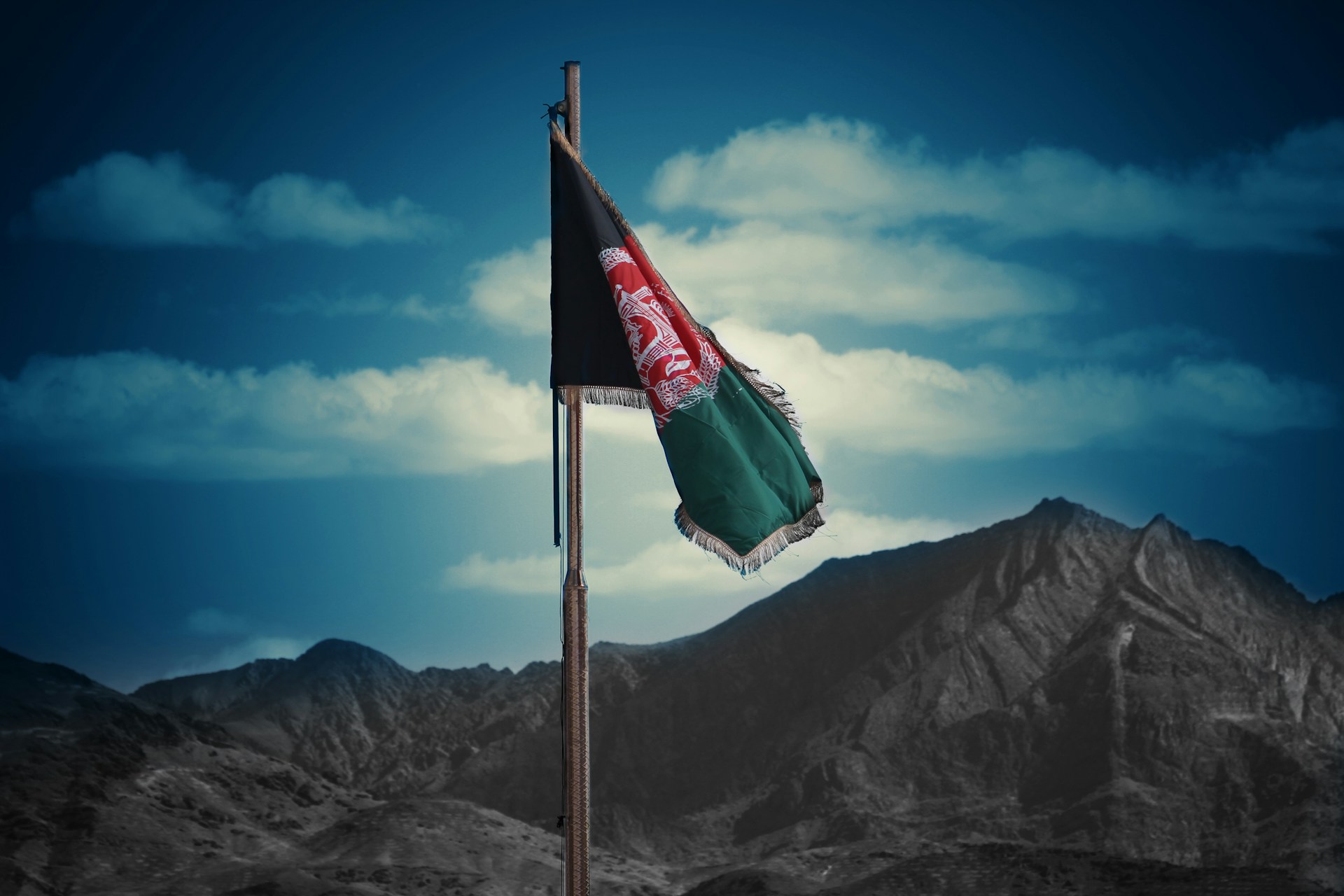A couple of years ago, I was sitting in our office, Koti Sangi in the west of Kabul when, during a roundtable discussion, someone kiddingly asked, “How’s the highway construction going?” Saleem Parwani 55, our staff driver, chuckled and replied, “Well, we’re running low on donkeys too.” Intrigued, I asked, “Why is that?” His response took me by—surprise.
The answer was both revealing and unsettling. A man from the Mahipar mountains, where Chinese construction teams have been working on roads, shared a story that shed light on a hidden consequence of development. “The Chinese eat everything with four legs except tables—and everything that flies except airplanes,” someone quipped.
He recounted how poor villagers had been selling their donkeys to the Chinese laborers so they could eat the meat—donkeys that were once a lifeline for these communities, relied upon for transportation and farming.
It brought to mind an incident a few years ago when China’s Xinjiang Beixin Road and Bridge Group Co. Ltd. was constructing the Kabul-Jalalabad highway. The pace of progress seemed unstoppable, but at what cost? While the roads are being built, traditional ways of life are slowly eroding, with locals trading away their livelihoods for short-term gain.
Jill Suzanne Kornetsky, a social entrepreneur and nonprofit founder in Afghanistan, explained further, reflecting on the political backdrop to this transformation. “For starters, there was no real power vacuum after the Taliban took over. This wasn’t a situation where the ruling government was toppled, leaving a leadership gap. The Taliban were ready—more ready than anyone expected. They entered Kabul with inventory lists for every ministry, tracking everything down to vehicles owned by former Government of the Islamic Republic of Afghanistan (GIROA) politicians. They knew who lived where and who held which security positions. Their preparedness caught many by surprise.”
Her insights painted a complex picture of the current situation in Afghanistan, especially when discussing the country’s readiness to join China’s Belt and Road Initiative (BRI). “Readiness to join BRI,” she emphasized, “isn’t just about holding meetings or maintaining security. It’s about whether the Taliban can demonstrate that they can operationalize massive infrastructure projects across provinces. Look at Qosh Tepa or the post-2021 completion of other large-scale road projects—these examples show that they are indeed capable.
Any corruption that might be happening is controlled enough not to jeopardize the future of the project. Regional actors and China, frankly, don’t care if the Taliban favor their own families or other Taliban members for contracts. GIROA did the same, but worse. The difference is, GIROA took too much, too fast, and killed the cow by starvation. The Taliban, it seems, are trying not to make that same mistake.”
Jill also explained the broader geopolitical implications. The U.S. has no control over China’s activities here, particularly not in mining. “Just look at the $6 billion in mining contracts the Taliban signed this year—most with Chinese companies. And you’ll see Chinese businessmen around Kabul. The irony is, China had no problem with NATO being here. In fact, they were happy to let NATO handle security, pay for roads and electrification, and build infrastructure that China now benefits from. China is driving on American-funded roads and charging their phones using American-funded electrification while they mine Afghanistan’s minerals without paying for any of it.”
But Jill’s concerns run deeper than just economic opportunism. She is worried about the long-term impact on Afghanistan’s environment and people. “I once spoke with a Chinese trade representative here,” she recalled. “I told him I was concerned about how they would be mining gold—likely using open cyanide pits. This method pollutes the water, kills river ecosystems, and poisons communities, causing severe birth defects and cancers. His response? ‘Oh, they will definitely do all of those things. Afghans are too stupid to know the difference, and by the time the kids are born deformed, we will be long gone.’” Her voice faltered as she added, “Afghanistan will lose in the long term.”
These concerns echo a pattern seen across the globe, where China’s BRI projects have left countries burdened with unsustainable debts, strip-mined resources, and a trail of environmental devastation. Jill drew comparisons to Africa, where Chinese investment in infrastructure often serves to facilitate access to mineral deposits rather than genuinely develop the local economy. “It’s happening here,” she said grimly. “If Afghanistan remains isolated, in 30 years, it will be strip-mined and polluted into oblivion.”
David Morris, a former Australian diplomat who recently completed his PhD on the risks of interdependence on the Belt and Road Initiative, offered additional context. He explained, “There are several trends at play. Chinese businesses are expanding into regions like Central Asia, looking for economic opportunities. Sometimes these projects are commercially driven, sometimes policy driven. The BRI is a mix of both, but there’s a misconception that all Chinese involvement is about policy influence. It’s more nuanced than that.”
Morris was careful to point out that while China is a major player, the sovereign states involved, including Afghanistan, are not passive actors. “Countries like Afghanistan enter into these agreements with their eyes wide open. They understand that infrastructure projects need to pay off in the long run to avoid debt traps. But there are risks, of course. Infrastructure projects of this scale often run over cost and face local governance and security issues. The key is how well governments manage these challenges.”
He also noted the changing security dynamics in the region, particularly with Russia’s waning influence. “While Russia still poses a security dilemma, states are looking to diversify their security partnerships. China, while cautious, supports the territorial integrity of these states and could become a more welcome partner, especially as Russia’s grip loosens.”
However, both Jill and Morris agree on one thing: the relationship between China and Afghanistan is purely transactional. “Neither side particularly likes or respects the other,” Jill remarked. “But the Taliban need investors, and China wants access to Afghanistan’s minerals. It’s a relationship of necessity.”
As Afghanistan grapples with its new political reality and the influx of foreign investment, as the Taliban moves to join the BRI, the question remains: what will be left in the wake of these deals? Infrastructure might bring jobs in the short term, but at what cost to the country’s long-term sustainability and the well-being of its people.
Views: 126












